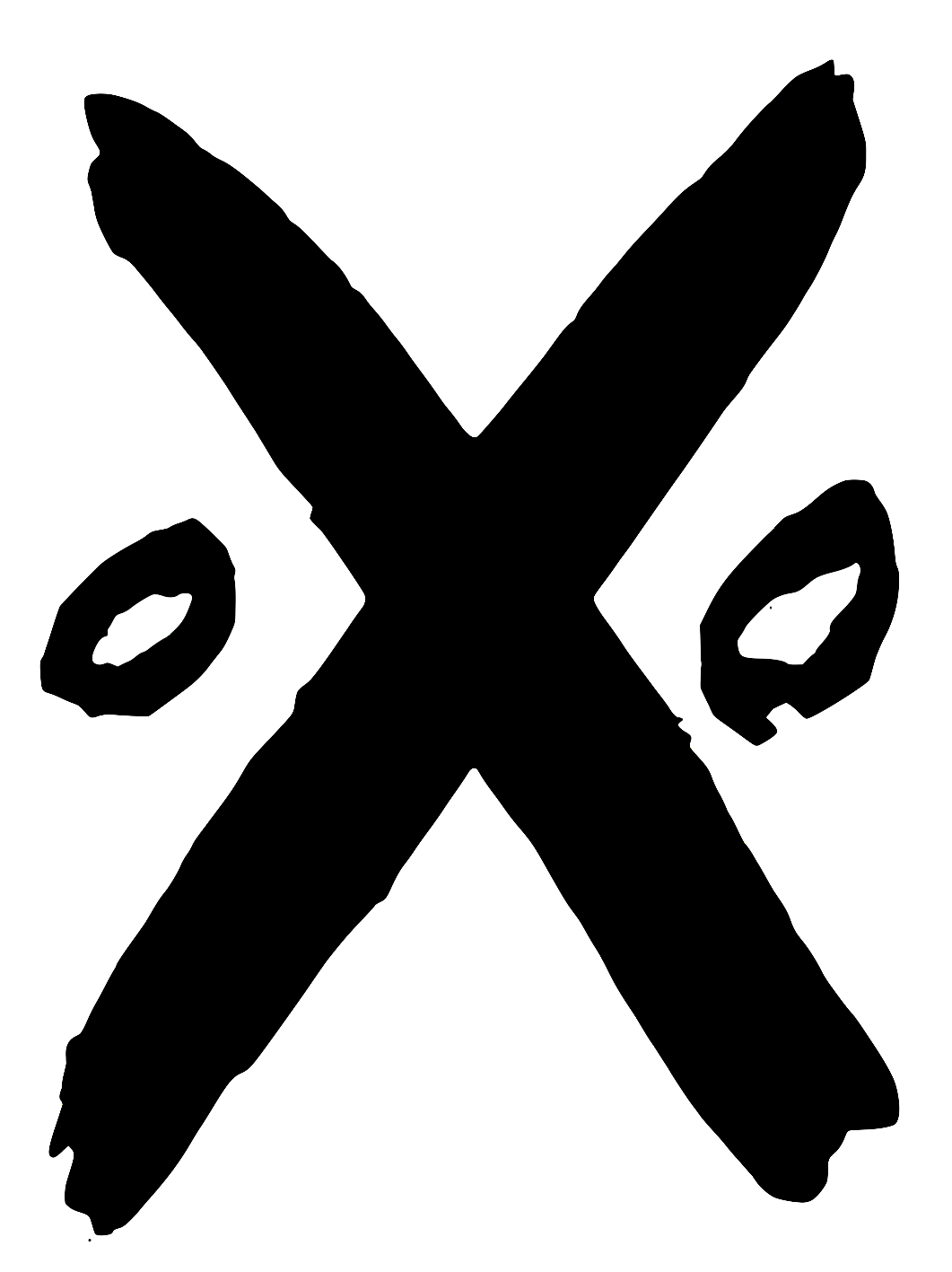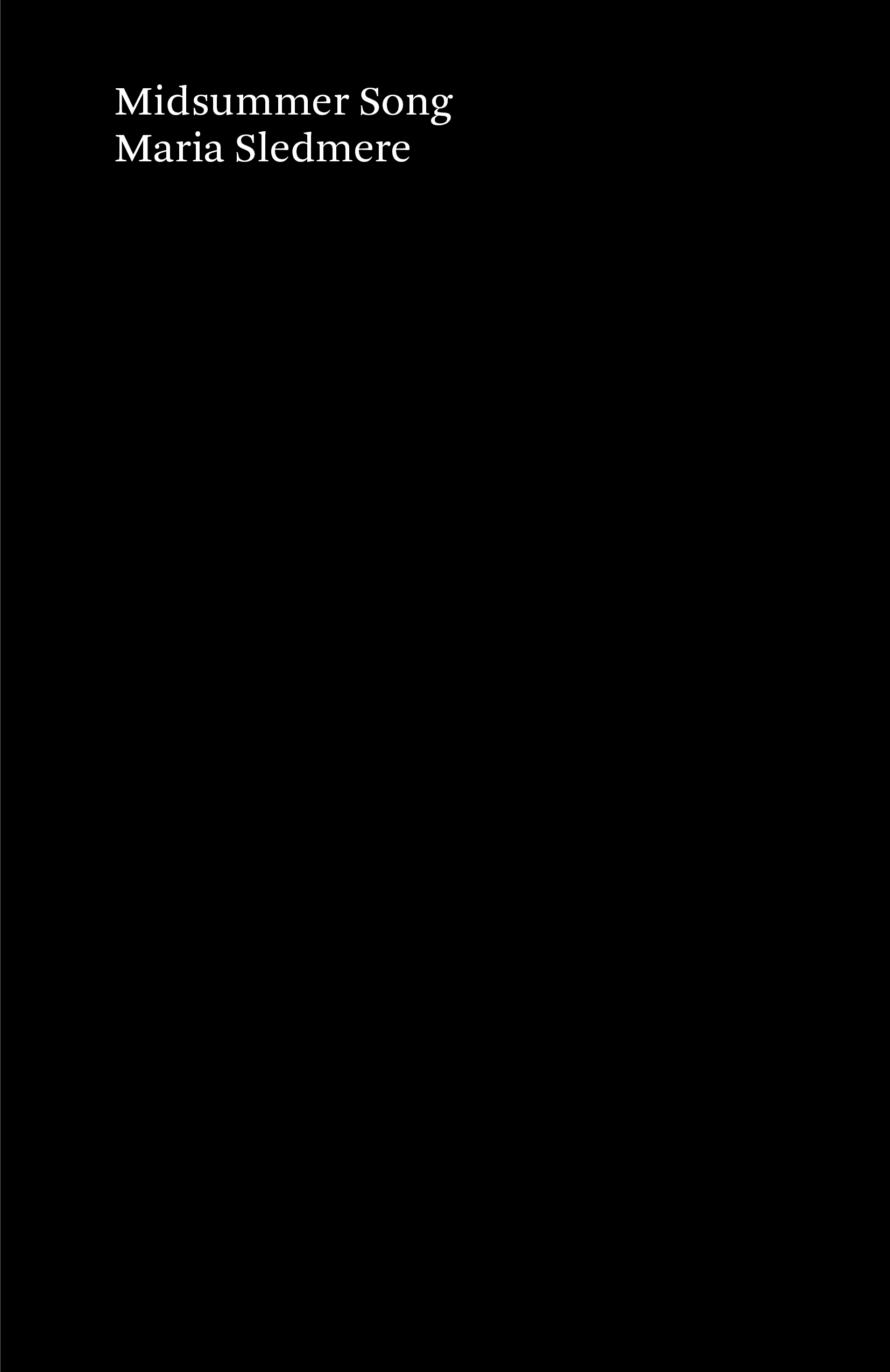
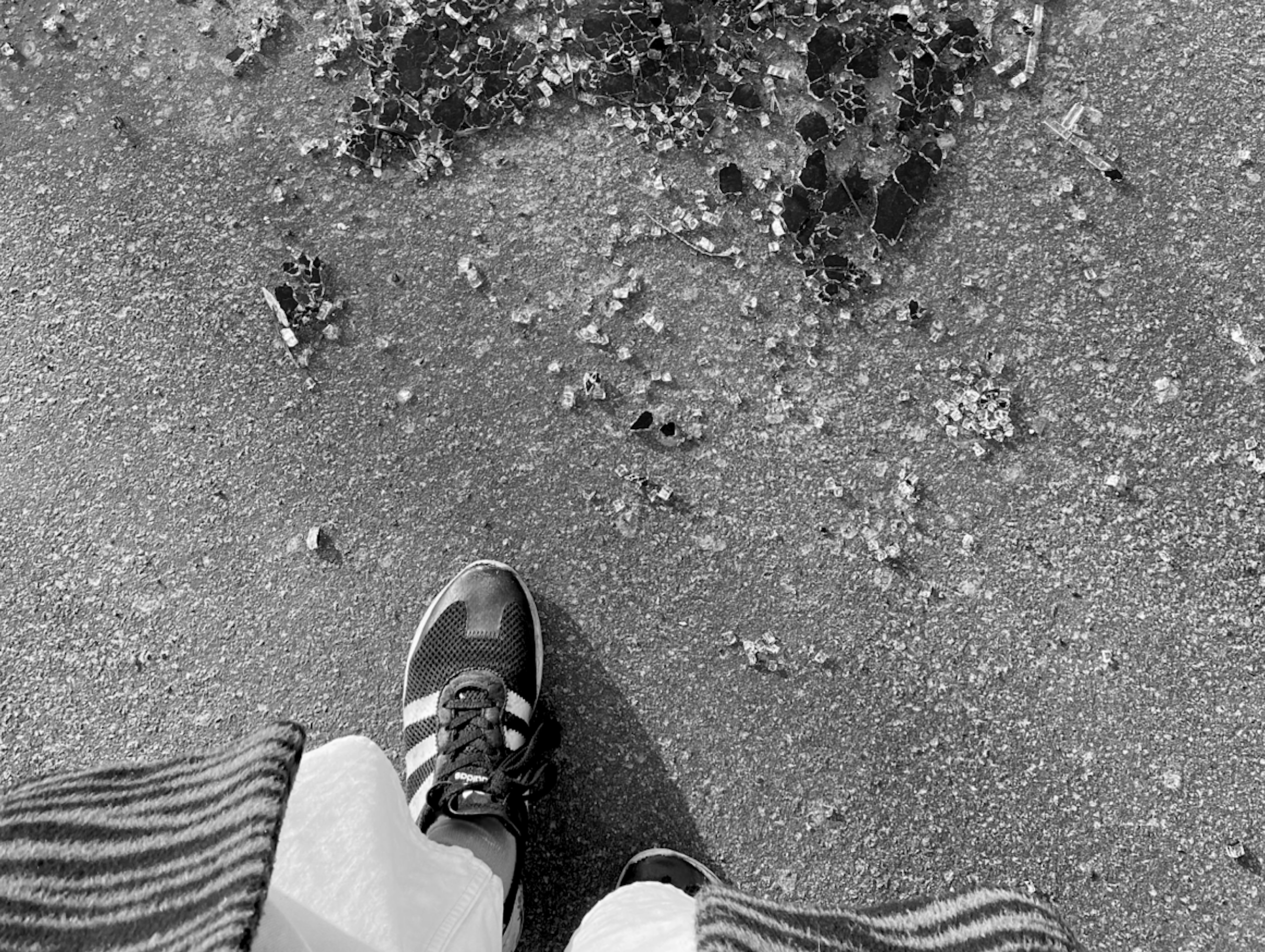
Midsummer Song / Hypercritique
Maria Sledmere
(eds.) Benjamin Pickford
& Dominic J. Jaeckle
Tenement Press / No University Press #2
978-1-7393851-7-0
310pp [Approx.]
£18.50
PREORDER DIRECT FROM TENEMENT HERE
Publishing 30th September 2024
(eds.) Benjamin Pickford
& Dominic J. Jaeckle
Tenement Press / No University Press #2
978-1-7393851-7-0
310pp [Approx.]
£18.50
PREORDER DIRECT FROM TENEMENT HERE
Publishing 30th September 2024
The second title in Tenement’s ‘No University Press’
series, Sledmere’s Song is an interrogative appendix of
essayistic motifs and citational montage. A raised bed of
a book, a syncopated study of mutualism, commonality,
interdependence, and resilience.
series, Sledmere’s Song is an interrogative appendix of
essayistic motifs and citational montage. A raised bed of
a book, a syncopated study of mutualism, commonality,
interdependence, and resilience.

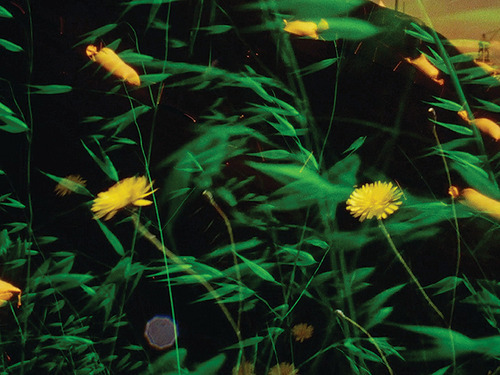
Left—Sledmere, portrait
Right—From Jerome Hiller’s Words of Mercury (2011)
Wholeness is loose and temporary—————a kind of fog.
Lyn Hejinian, Positions of the Sun
In the dark times
Will there also be singing?
Yes, there will also be singing.
About the dark times.
Bertolt Brecht, ‘Motto’
Maria Sledmere’s Midsummer Song—an autopoietic almanack of disambiguated ideas, a pale fire of a poem—is a spiralling work of scholarship that, oriented around the axis of this single ‘song,’ argues a curling grammatology of nocturnal time via a murmuring appendix of essays. Turning the term ‘anthropocene’ over a colloquial riverbed of intimations—retuning its resonances and compulsions to a lexicon of existence and survival—Sledmere invites us to consider our response (and our ongoing being) amidst an ever-widening gulf of social and environmental crises. To examine the song as sung, to refract the act of singing, here we’ve a citational web of resilient ideas. A book that examines the startled creativity of our present, the immersion of our moment, and the muddiness of our outlook: ever on the make and wide-awake for new forms of (and forums for) active engagement.
Sledmere’s Song begins with a suite of verses for June 21st, 2021—a searching, lyric architecture for the Summer Solstice—a paean to the possibility of meadowing a dreamscape on the horizontal brink of our warmest season. This poetry then hyperlinks its way away from the conclusive camber of the broken line to pose a reticulated, exploratory conception of our reading and writing the transitive labour of the daily: a mode of critical positioning and being that Sledmere terms hypercritique.
Spilling outward from this single poem, through an array of elaborative footnotes we’ve a ‘choose-your-own-adventure’ guidebook to our epochal moment of convergent calamities. Slumbering, spectral units, subjectivity, syncope, and survival. Under the filial wing of Hélène Cixous and Jacques Derrida, Sledmere deconstructs instrumental, solutionist thought modes across theory, culture and society. Her trace materials are glitter and dust, cinders and syllables; this is a book that rubs sand together to make glass of its sentences and considers the fragility of a window’s slant and angle on the seasonal arc and drift of perspectival time.
A book on the need for song as midsummer inches its way toward an axiomatic autumn, Sledmere’s work scrutinises contemporary modes of critical inquiry: of the writing for, the arguing towards, and the reading backwards to contemplate, instead, the shimmer time of the present tense.

See here for a variation on Sledmere’s poem,
‘Midsummer Song,’ by way of Tenement’s Rehearsal.
There’s a variable transparency to the way you might bloom
just once or twice, as long as this poem shall live.
Had we run through the meadow so long
to not look back, take photographs
or even handfuls of flowers the daughters would scorn
ten years from now, on picket lines
having thrown flowers between their bodies
and the police,
so the dogs would stop, and the horses.
I am crushing cetirizine
under my tongue
and wishing the trees good sex.
[...]
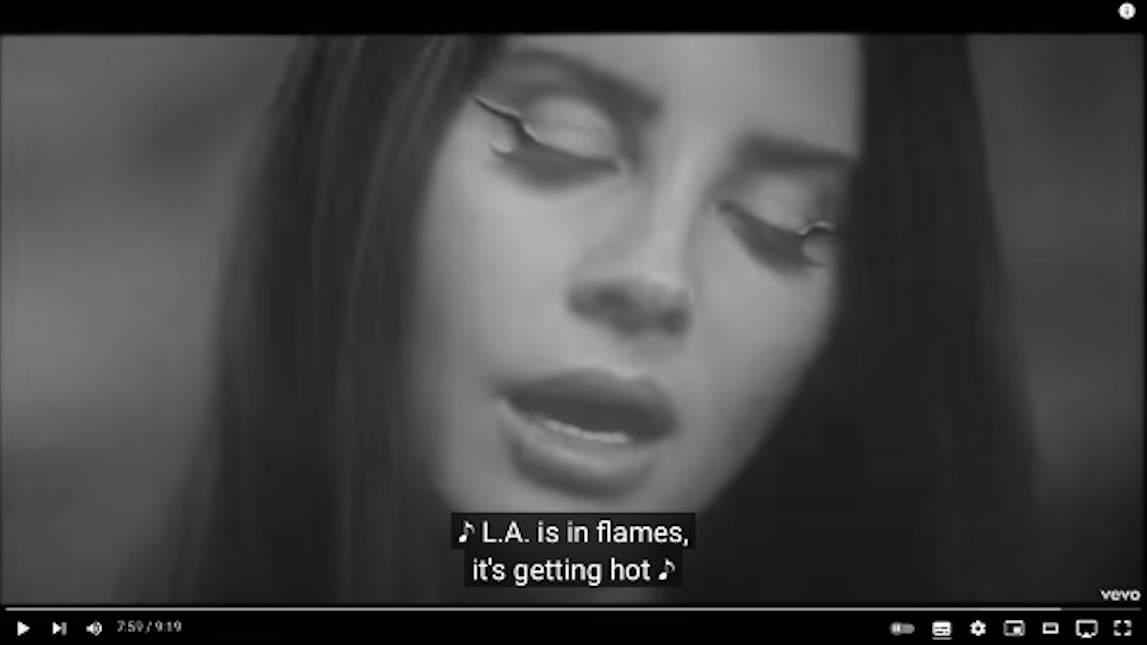 youtube.com/watch?v=LrSX_OcpeJg
youtube.com/watch?v=LrSX_OcpeJgImages—
Sledmere all,
with exceptions,
© 2024
Praise for Sledmere’s first collection,
The Luna Erratum (Dostoyevsky Wannabe, 2021)
How do you explain yourself to yourself when you suspect that actuality—your experience of it—is provisional and full of error? You come up with your own poetics, your own tense and mode of address, which is a lunar one, and which involves speaking in crushed, frothy mouthfuls to a terrifyingly silent, unpredictable and generous friend (celestial objects, an indifferent lover, &c.).
The Luna Erratum offers no truth except in things—colours, materials, beings, dreams, schemes of language, human artefacts and locations—and their known convergences, all of which hold as much affective weight and capacity for transformation as the events that precipitated this profoundly graceful, unsettling and mesmerising book.
Sophie Collins
A glittering universe, Maria Sledmere’s first poetry collection is both lyrical and electric, both video game and watercolour. Reading these poems feels like ingesting semantic MDMA, the ectoplasm of a Victorian ghost trying to reach her lover through an unstable Wi-Fi connection. Sledmere’s words ooze a desire that is part animal, part human, part astral body.
Nadia de Vries
The Luna Erratum (Dostoyevsky Wannabe, 2021)
How do you explain yourself to yourself when you suspect that actuality—your experience of it—is provisional and full of error? You come up with your own poetics, your own tense and mode of address, which is a lunar one, and which involves speaking in crushed, frothy mouthfuls to a terrifyingly silent, unpredictable and generous friend (celestial objects, an indifferent lover, &c.).
The Luna Erratum offers no truth except in things—colours, materials, beings, dreams, schemes of language, human artefacts and locations—and their known convergences, all of which hold as much affective weight and capacity for transformation as the events that precipitated this profoundly graceful, unsettling and mesmerising book.
Sophie Collins
A glittering universe, Maria Sledmere’s first poetry collection is both lyrical and electric, both video game and watercolour. Reading these poems feels like ingesting semantic MDMA, the ectoplasm of a Victorian ghost trying to reach her lover through an unstable Wi-Fi connection. Sledmere’s words ooze a desire that is part animal, part human, part astral body.
Nadia de Vries
Sledmere’s work was selected
via open submission by the NoUP
editors, MMXXIII


